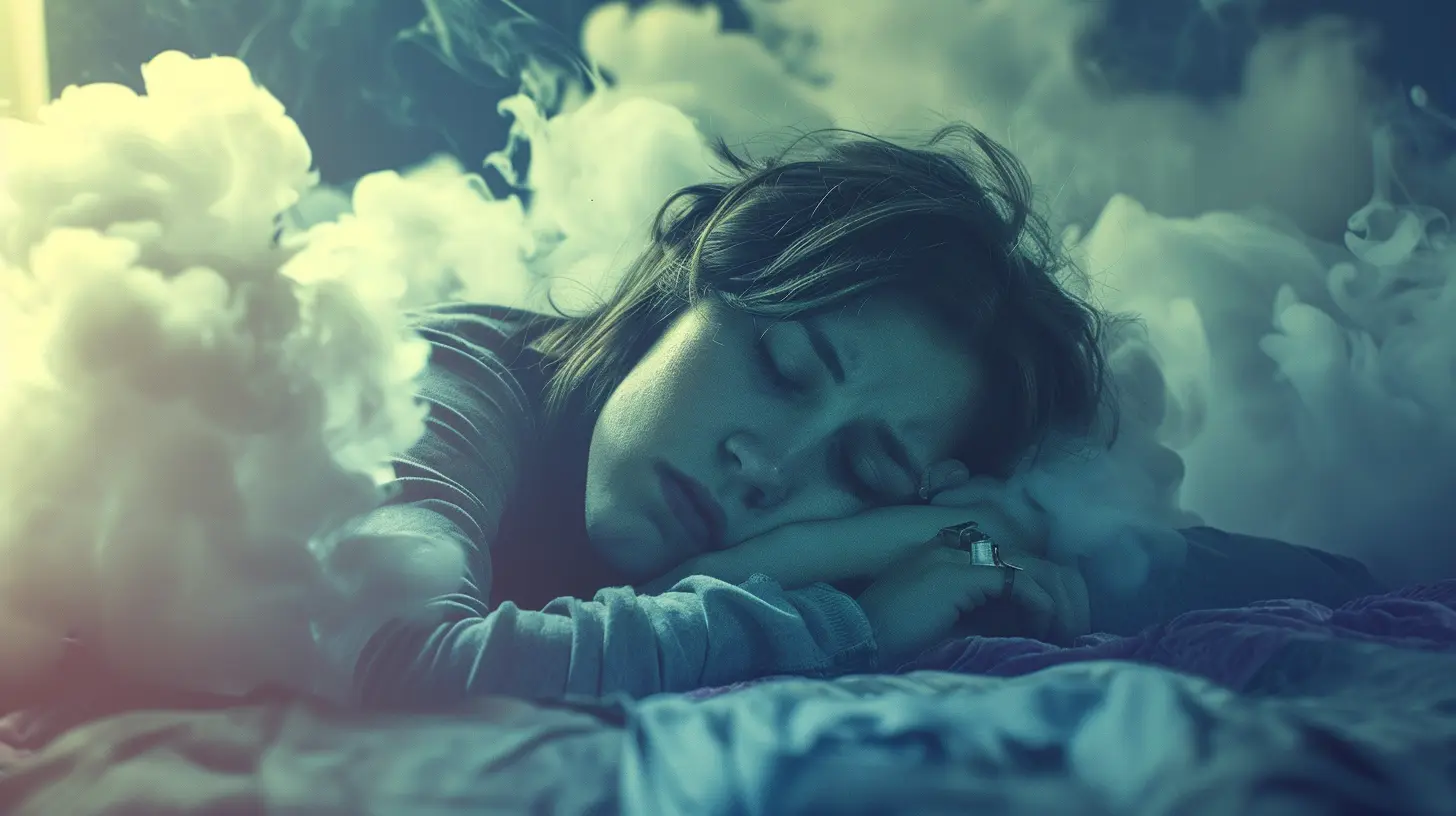Burnout and the Need for Restorative Sleep
13 February 2025
We’ve all been there—feeling utterly exhausted, mentally drained, and emotionally done. But it’s not just about being tired; it’s something deeper, something that sleep alone doesn’t seem to fix. This feeling has a name: burnout. And while burnout can stem from a variety of sources, one thing is clear—restorative sleep plays a crucial role in overcoming it.
In this article, we’re going to dive deep into what burnout really is, why it happens, and how sleep isn’t just about closing your eyes for eight hours. It’s about truly recharging—mind, body, and soul.

What is Burnout?
Burnout is more than just feeling tired. It’s that overwhelming sense of fatigue that seeps into every part of your life—your job, your relationships, your hobbies. It’s like trying to run a marathon with no finish line in sight. You feel stuck, unmotivated, and sometimes even hopeless.Officially, the World Health Organization (WHO) defines burnout as a syndrome resulting from chronic workplace stress that hasn’t been successfully managed. But let’s be real, burnout can come from anywhere—parenting, caregiving, dealing with constant life stressors, or even the pressure we put on ourselves.
Burnout has three primary symptoms:
1. Exhaustion: You’re physically and emotionally drained all the time.
2. Cynicism or Detachment: You start to feel disconnected from things that once mattered.
3. Inefficacy: You feel like no matter what you do, it’s never enough.
It’s not something that happens overnight either. Burnout creeps in slowly, and if left unchecked, it can lead to more serious issues like anxiety, depression, and even physical health problems.
The Vicious Cycle of Burnout and Sleep
Here’s where things get tricky. When you're burnt out, your sleep is often the first thing to go. You’re either struggling to fall asleep, waking up multiple times during the night, or you're sleeping but waking up feeling completely unrefreshed. This lack of quality sleep doesn’t just leave you tired—it makes burnout worse. It’s a vicious cycle that feels impossible to break.Why does this happen? When we’re stressed, our bodies release cortisol, the "stress hormone." Cortisol keeps us alert and ready for action—great if you’re running from a lion, not so great if you’re trying to get some shut-eye. Elevated cortisol levels at night can disrupt your sleep cycles, particularly the deep, restorative stages of sleep that your brain and body need to recover.
And the kicker? Without proper sleep, your brain can’t properly process emotions, which means you're more likely to feel irritable, anxious, and—you guessed it—more burnt out.

Why Quality Sleep is Essential for Recovery
Okay, so we know burnout is bad. But why is sleep such a big deal? Isn’t sleep just sleep? Not exactly.When it comes to recovering from burnout, not all sleep is created equal. You need restorative sleep—the kind that leaves you feeling refreshed and ready to tackle the day.
Let’s break it down:
1. The Role of REM Sleep
REM (Rapid Eye Movement) sleep is critical for your brain. This is when your brain processes emotions, consolidates memories, and basically hits "refresh." Without enough REM sleep, it’s harder to regulate your emotions, which is key when you’re trying to recover from burnout.2. Deep Sleep for Physical Recovery
Deep sleep is when your body does most of its repairing. Your muscles rebuild, your immune system strengthens, and your body detoxifies. Without deep sleep, you’re not just sluggish the next day—you’re physically worn down.3. Cognitive Function and Problem-Solving
You know that foggy-headed feeling you get when you're sleep-deprived? That's your brain struggling to function. Sleep is vital for cognitive processes like attention, decision-making, and problem-solving—all of which take a nosedive when you're burnt out.In short, sleep is like hitting the reset button on your brain and body. Without it, you’re operating on fumes, which only fuels the burnout fire.

Signs That You’re Not Getting Restorative Sleep
So, how do you know if you’re getting the kind of sleep that can actually help you recover from burnout? Here are some telltale signs that your sleep isn’t as restorative as it should be:- You Wake Up Exhausted: Even after a full night’s sleep, you feel like you could hit the snooze button a dozen more times.
- You Feel Groggy During the Day: You’re constantly reaching for that second (or third) cup of coffee just to stay awake.
- You’re Easily Irritated: Little things set you off, and your emotional tank feels empty.
- You’re Forgetful or Unable to Focus: Your brain feels like it’s in a fog, and you can’t seem to concentrate on anything for too long.
- You Feel Physically Run-Down: You’re more prone to getting sick, and your body feels perpetually tired.
If any of these sound familiar, chances are you’re not getting the type of sleep you need to truly recover from burnout.

How to Prioritize Restorative Sleep
Now that we know how important restorative sleep is, let’s talk about how to actually get it. Spoiler alert: It’s not just about crawling into bed earlier.1. Establish a Relaxing Nighttime Routine
Your body craves routine, especially when it comes to sleep. Try to go to bed and wake up at the same time every day (yes, even on weekends). Develop a wind-down routine that signals to your brain that it’s time to sleep. Maybe it’s a warm bath, reading a book, or practicing some deep breathing exercises. The key is to disconnect from the stress of the day and ease into sleep mode.2. Create a Sleep-Friendly Environment
Your bedroom should be a sanctuary for sleep. Keep the room cool, dark, and quiet. If you’re sensitive to noise, consider using earplugs or a white noise machine. Avoid using screens (like your phone or TV) before bed, as the blue light they emit can mess with your body’s natural sleep-wake cycle.3. Limit Stimulants and Heavy Meals
Caffeine and alcohol can interfere with your ability to fall asleep and stay asleep. Try to avoid them in the hours leading up to bedtime. Similarly, eating a large meal right before hitting the hay can make it harder to sleep comfortably.4. Manage Stress During the Day
This one’s easier said than done, I know. But managing your stress during the day can have a huge impact on your sleep quality. Consider incorporating stress-relief practices like meditation, yoga, or journaling into your daily routine. Even a short walk outside can help reset your stress levels.5. Don’t Obsess About Sleep
If you’re lying in bed, staring at the ceiling, and stressing out about the fact that you’re not sleeping, it’s only going to make things worse. If you can’t sleep after 20 minutes, get up and do something relaxing until you start to feel sleepy again. The more you stress about sleep, the harder it becomes to actually fall asleep.The Power of Naps (But Don’t Overdo It)
If you’re really struggling with burnout and sleep deprivation, a power nap could help. A short, 20-30 minute nap can give you a quick energy boost without interfering with your nighttime sleep. Just be mindful not to nap too late in the day, as it could make it harder to fall asleep at night.
When to Seek Help
If you’ve tried everything and still feel like you’re drowning in exhaustion, it might be time to seek professional help. Burnout can sometimes require more than just better sleep hygiene—it may need a holistic approach involving therapy, medication, or lifestyle changes.Don’t be afraid to reach out to a healthcare professional. Burnout is real, and you don’t have to go through it alone.
Final Thoughts: Sleep is the Ultimate Healing Tool
Burnout is tough. It can feel like you’re stuck in a never-ending cycle of exhaustion and stress. But the good news? Sleep is one of the most powerful tools we have for recovery. It’s not just about getting more sleep—it’s about getting better sleep.By prioritizing restorative sleep, you’re giving your brain and body the chance to heal, recharge, and bounce back stronger than ever. So, next time you’re feeling burnt out, remember: Sometimes, the most productive thing you can do is rest.
all images in this post were generated using AI tools
Category:
BurnoutAuthor:

Jenna Richardson
Discussion
rate this article
9 comments
Lila Mitchell
Thank you for highlighting the crucial link between burnout and restorative sleep. Your insights emphasize the importance of prioritizing rest for overall mental health.
March 9, 2025 at 5:28 PM

Jenna Richardson
Thank you for your thoughtful comment! I'm glad you found the connection between burnout and restorative sleep valuable. Prioritizing rest is indeed essential for mental health.
Mitchell Coleman
This article highlights the critical link between burnout and restorative sleep. Prioritizing quality sleep can significantly improve mental health and resilience, making it essential for managing stress and enhancing overall well-being.
February 27, 2025 at 5:40 AM

Jenna Richardson
Thank you for your insightful comment! I completely agree that prioritizing restorative sleep is vital for combating burnout and enhancing overall well-being.
Ardyn McPherson
This article resonates deeply with me. It highlights the critical link between burnout and restorative sleep, reminding us that self-care is essential. We often overlook our need for rest in our busy lives—thank you for this important reminder.
February 23, 2025 at 5:14 PM

Jenna Richardson
Thank you for your thoughtful comment! I'm glad the article resonated with you. Prioritizing self-care and restorative sleep is indeed vital for our well-being.
Zeth McNulty
This article on burnout highlights a crucial connection to restorative sleep that often gets overlooked. Sleep isn’t just about rest; it’s a vital component of mental health. I’m curious to learn more about the science behind sleep’s restorative effects—how can we optimize our sleep to combat burnout effectively?
February 21, 2025 at 3:45 AM

Jenna Richardson
Thank you for your interest! To optimize sleep and combat burnout, focus on establishing a consistent sleep schedule, creating a restful environment, and practicing relaxation techniques before bed. Prioritizing these habits can enhance sleep quality and support mental health.
Faelith McFarlane
Restorative sleep is your superpower! Recharge, refresh, and conquer the day ahead! 🌟😴
February 20, 2025 at 3:39 PM

Jenna Richardson
Absolutely! Restorative sleep is essential for mental clarity and resilience. Let's prioritize it for optimal well-being! 🌟
Brianna Soto
This article highlights an essential truth: our mental and physical well-being hinges on restorative sleep. I've personally experienced the toll of burnout, and I now recognize sleep as a vital tool for recovery. Prioritizing rest is not just a luxury; it’s a necessity for a healthier, balanced life.
February 17, 2025 at 4:35 PM

Jenna Richardson
Thank you for sharing your insights! Prioritizing restorative sleep is indeed crucial for overcoming burnout and achieving overall well-being.
Nellie McConnell
Restorative sleep is crucial for recovery from burnout, enhancing mental resilience and overall well-being. Prioritize rest!
February 17, 2025 at 4:29 AM

Jenna Richardson
Thank you for emphasizing the importance of restorative sleep! It truly is vital for recovery and resilience.
Azura Baxter
Thank you for highlighting the importance of restorative sleep for well-being.
February 15, 2025 at 3:56 AM

Jenna Richardson
You're welcome! I'm glad you found it valuable. Restorative sleep is crucial for combatting burnout.
Maria Duke
Sleep: the magical land where adulting takes a break and dreams of a life where 8 hours is just a ‘nap.’ If only we could trade our coffee breaks for pillow fights and bedtime stories—restorative slumber, here we come! Who's in for a cozy revolution?
February 13, 2025 at 5:28 AM

Jenna Richardson
Absolutely! Restorative sleep is essential for recovery and well-being. Let's embrace that cozy revolution and prioritize our sleep over stress!
MORE POSTS

The Role of Social Networks in Shaping Political Beliefs

Behavior Modification Techniques for Personal Growth

How to Support a Loved One Going Through Burnout

The Neuroscience of Attachment: Why Early Bonding Matters

How to Create Lasting Behavior Change Through Self-Monitoring

How Cognitive Biases Shape Our Perception of the World

Recognizing Mania: What Are the Warning Signs?